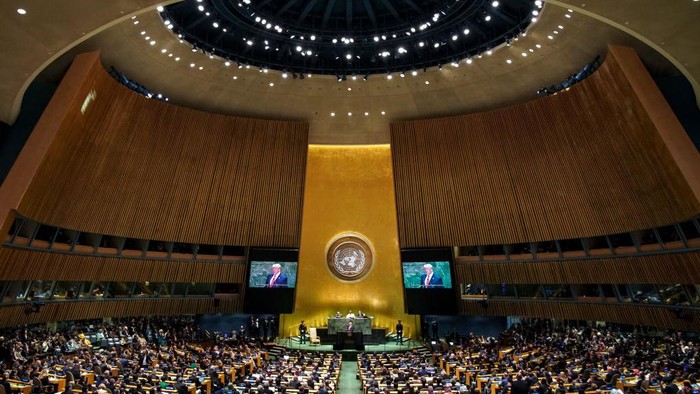The United Nations (UN), a cornerstone of international cooperation and humanitarian efforts, is facing a significant organizational shift. Recent announcements indicate that the UN plans to implement substantial budget cuts, leading to widespread layoffs. This development has raised concerns about the future of global humanitarian aid and the organization's ability to fulfill its mission.
Understanding the Scope of the Layoffs
In an internal memorandum, the UN Secretariat revealed plans to reduce its operating budget by 20%, equating to approximately $740 million. This financial adjustment is expected to result in the elimination of around 6,900 positions across various departments and agencies. The decision stems from a combination of factors, including delayed contributions from member states and shifting geopolitical priorities.
The layoffs are part of a broader initiative known as "UN80," aimed at modernizing and streamlining the organization's operations as it approaches its 80th anniversary. Departments have been instructed to submit detailed proposals for staff reductions by mid-June, with the changes set to take effect at the beginning of the next fiscal year.
Factors Contributing to the Budget Cuts
Several key elements have contributed to the UN's current financial predicament:
- Delayed Contributions: Major donors, including the United States and China, have been late in fulfilling their financial commitments. The U.S., which traditionally covers about 22% of the UN's regular budget, has withheld nearly $1.5 billion in dues, exacerbating the organization's liquidity crisis.
- Geopolitical Shifts: Changes in global political dynamics have influenced funding priorities. Some member states are reevaluating their financial support for international bodies, leading to reduced contributions and increased financial uncertainty for the UN.
- Operational Inefficiencies: Internal assessments have identified areas where the UN's operations can be more efficient. The current restructuring aims to address these inefficiencies by consolidating departments and relocating certain functions to more cost-effective regions.
Impact on Humanitarian Aid and Global Programs
The planned layoffs and budget reductions are expected to have far-reaching consequences on the UN's humanitarian efforts:
- Program Reductions: Essential services provided by agencies such as the World Food Programme (WFP), the United Nations High Commissioner for Refugees (UNHCR), and the United Nations Relief and Works Agency (UNRWA) may face significant cutbacks. These reductions could hinder the delivery of food assistance, refugee support, and other critical services.
- Operational Challenges: With a diminished workforce, the UN may struggle to respond effectively to global crises, including natural disasters, conflicts, and health emergencies. The reduced capacity could delay response times and limit the organization's ability to provide timely assistance.
- Staff Morale and Retention: The uncertainty surrounding job security may impact staff morale, leading to decreased productivity and potential loss of experienced personnel. Maintaining a motivated and skilled workforce is essential for the UN to carry out its mission effectively.
Organizational Restructuring and Future Outlook
The UN's leadership is approaching this restructuring as an opportunity to enhance the organization's efficiency and adaptability:
- Strategic Realignment: By consolidating overlapping functions and eliminating redundancies, the UN aims to create a more streamlined operational structure that can respond more effectively to global challenges.
- Technology Integration: Embracing digital solutions and modern technologies may help the UN optimize its operations, improve communication, and reduce costs in the long term.
- Stakeholder Engagement: Engaging with member states, donors, and partners is crucial to rebuilding trust and securing the necessary funding to sustain the UN's programs and initiatives.
Conclusion
The United Nations is at a critical juncture, facing the dual challenges of financial constraints and the need to maintain its global humanitarian mission. The planned layoffs and budget cuts underscore the importance of organizational adaptability and the need for sustained support from the international community. As the UN navigates this period of transformation, its ability to uphold its founding principles and deliver on its commitments will depend on effective restructuring, renewed partnerships, and a shared commitment to global cooperation.
Read More






 Friday, 27-02-26
Friday, 27-02-26







